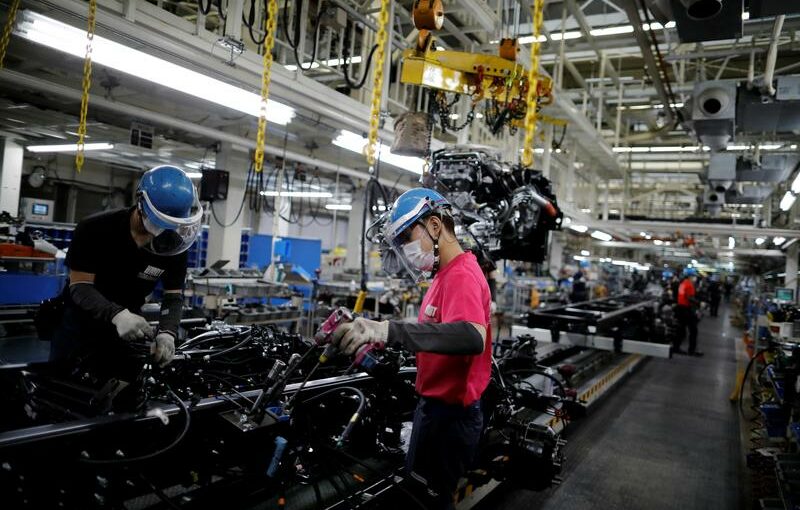TOKYO (Reuters) – Japan’s industrial output shrank in July as car production took a hit from a coronavirus resurgence in Asia that has cast doubt over the recovery in the world’s third-largest economy.
A spike in highly contagious Delta variant cases has forced governments in Asia to impose fresh lockdowns and curbs, which are causing disruptions in parts supply across the region.
Factory output dropped 1.5% in July from the previous month, official data showed on Tuesday, hit by declines in the production of cars as well as electrical machinery and communication electronics equipment.
That meant output contracted again, weighed by a continuing global chip shortage, after surging 6.5% in the prior month thanks to a jump in auto production. It was stronger than a 2.5% fall forecast in a Reuters poll of economists.
Output of production machinery items, such as those used for manufacturing semiconductors, and electronic parts and devices, rose.
Manufacturers surveyed by the Ministry of Economy, Trade and Industry (METI) expected output to advance 3.4% in August and 1.0% in September.
The government kept its assessment of industrial production unchanged, saying it was picking up.
Separate data on Tuesday showed the jobless rate edged down to 2.8% from 2.9% in June, while an index gauging job availability gained slightly to 1.15 from 1.13 in June.
Japan’s economy expanded an annualised 1.3% in the second quarter, driven by solid consumption and exports.
But growth is expected to remain modest in the current quarter, with some analysts forecasting a possible contraction, as the country struggles with a COVID-19 resurgence, which has burdened medical facilities and shows no signs of abating.
Source: Read Full Article
